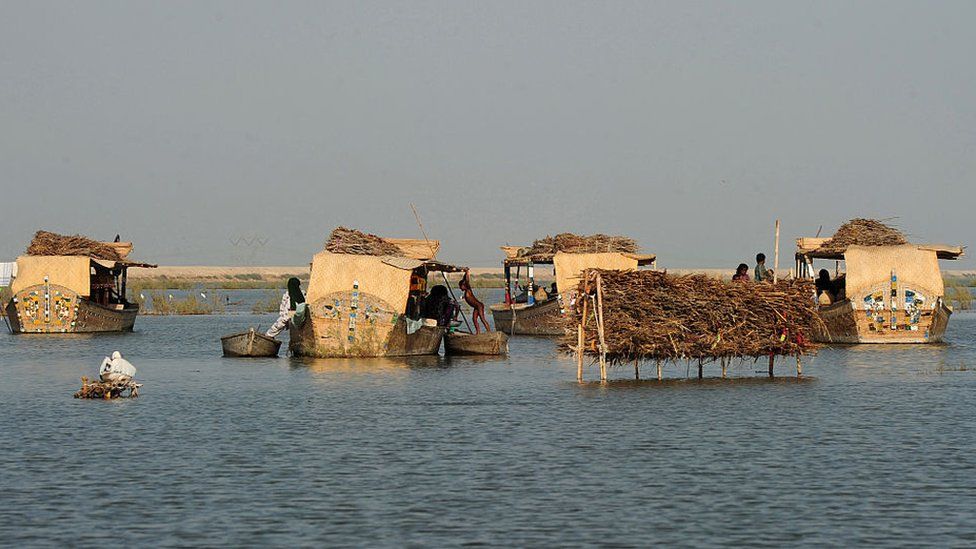ARTICLE AD BOX
 Image source, Getty Images
Image source, Getty Images
Pakistan's biggest lake, Manchar Lake, is on the verge of bursting its banks and flooding surrounding areas
Pakistan authorities are struggling to contain their biggest lake from bursting its banks after a last-ditch attempt to drain it failed.
Water levels in Manchar Lake, in the southeastern Sindh province, had risen to dangerously high levels after days of record monsoon rains.
The attempt to breach it displaced up to 100,000 people from their homes.
But on Monday, the province's minister for irrigation told Reuters the water level of the lake had "not come down".
Sindh province produces half of the country's food supply, exacerbating fears that many will face serious food shortages in a country already struggling with an economic crisis.
Floods in Pakistan have affected some 33 million people and killed at least 1,314, including 458 children, Pakistan's National Disaster Management Agency said.
Estimates suggest the floods have caused at least $10bn (£8.5bn) of damage.
On Sunday, officials breached the lake after it had flooded two rural towns, in hopes that it would prevent it from further bursting its banks and inundating more densely-populated areas.
But the move risked affecting an estimated 400 villages - a total of 135,000 people - who would be left without homes. Officials told villagers to evacuate at the weekend.
On Monday however, officials said water levels at the lake had remained dangerously high.
Jam Khan Shoro, the provincial minister for irrigation told news agency Reuters water levels had not come down, but declined to say if there would be subsequent attempts to relieve the river of its bloated banks.
Pakistan is facing one of its worst climate-induced natural disasters in years, as record torrential rainfall and melting glaciers in the country's northern mountains have caused devastating floods and submerged almost a third of its territory underwater.
Meanwhile, UN children's agency Unicef said more children were at risk of dying from disease in Pakistan due to the shortage of clean water.
The disaster has also highlighted the stark disparity between countries that are the largest contributors towards climate change and countries that bear the brunt of its impact.
Pakistan produces less than 1% of global greenhouse gas emissions but its geography makes it extremely vulnerable to climate change.
You may also be interested in:
Watch: Millions affected by heavy flooding in Pakistan

 2 years ago
26
2 years ago
26








 English (US) ·
English (US) ·